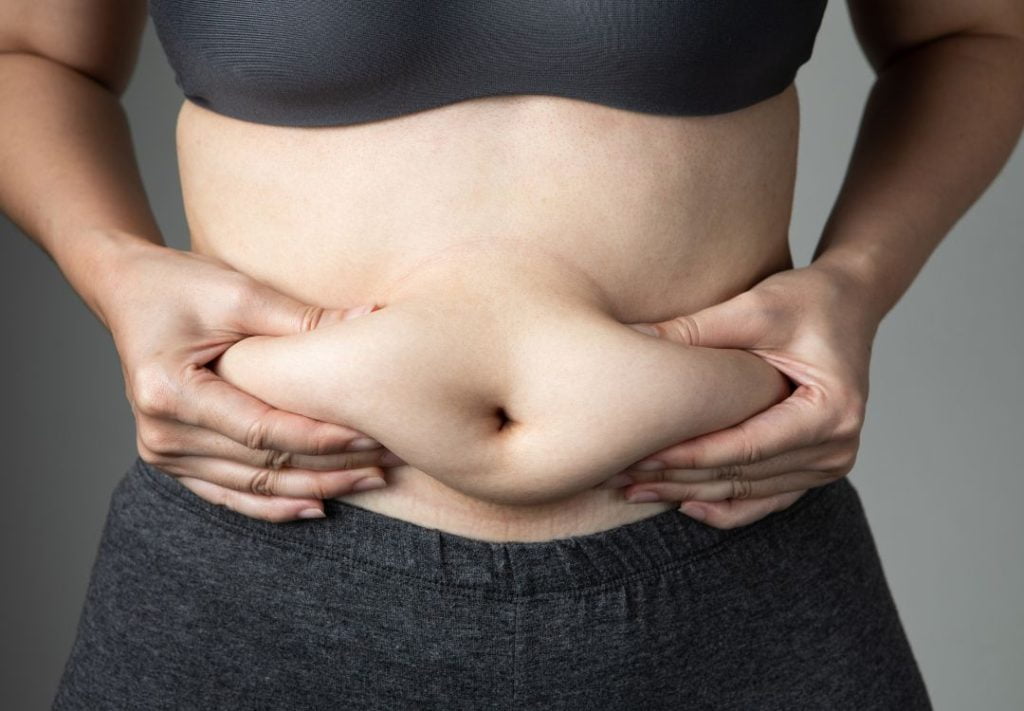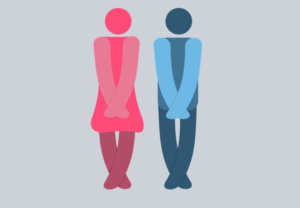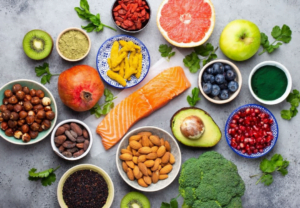Understanding the distinction between belly fat and bloating is crucial for anyone looking to improve their health and wellness. At first glance, an expanding waistline might suggest weight gain, but is it truly belly fat or could it be a sign of a swollen colon?
This article dives into the significance of both conditions, highlighting their causes, the health implications they carry, and effective strategies for managing them.
Whether you’re dealing with persistent belly fat or the discomfort of bloating, you’ll find actionable insights here to help you on your journey to a healthier you.
Understanding the Difference Between Belly Fat and Bloating
Defining Belly Fat
Belly fat, also known as abdominal or visceral fat, refers to the fat that is stored deep within the abdominal cavity. This fat surrounds vital organs such as the liver, pancreas, and intestines.
There are two types of belly fat – subcutaneous fat and visceral fat. Subcutaneous fat is stored just beneath the skin, while visceral fat lies deeper within the abdomen, wrapping around the organs.
Causes of Belly Fat
Several factors can contribute to the accumulation of belly fat. Genetics play a role in determining where fat is stored in the body, and some individuals may be genetically predisposed to carry excess fat in their abdominal area.
Additionally, a poor diet high in processed foods, sugary beverages, and saturated fats can contribute to the development of belly fat. Lack of physical activity, hormonal changes (such as menopause or imbalances), and high levels of stress and cortisol production can also contribute to the accumulation of belly fat.
Health Risks Associated with Belly Fat
Excess belly fat is not just a cosmetic concern; it is also associated with various health risks. Individuals with large amounts of belly fat have an increased risk of developing heart disease.
This fat produces hormones and inflammatory substances that can negatively impact insulin sensitivity and lipid metabolism, contributing to the development of type 2 diabetes.
Furthermore, belly fat has been linked to certain cancers, such as colorectal, breast, and pancreatic cancer. It can also harm metabolic health, leading to elevated blood pressure and cholesterol levels.
Spot Reduction Myth
Many people believe that they can target specific areas of their body, such as their belly, for fat reduction through exercises that target that specific area. However, this belief is a myth.
Spot reduction is not effective because your body cannot selectively burn fat from a particular area. When you engage in exercise, your body burns fat from all over, not just from the targeted area.
Lifestyle Changes to Reduce Belly Fat
To reduce belly fat and improve overall health, it is important to adopt a holistic approach. Start by focusing on a balanced diet that includes a variety of fruits, vegetables, lean proteins, whole grains, and healthy fats. Portion control is key, as consuming more calories than your body needs can lead to fat accumulation.

Regular exercise and physical activity, such as cardio and strength training exercises, can help burn calories and reduce body fat, including belly fat. Managing stress through techniques like meditation, yoga, or deep breathing exercises can also be beneficial.
Prioritizing adequate sleep and rest, reducing alcohol consumption, and evaluating and adjusting medication usage, if necessary, are additional lifestyle changes that can contribute to reducing belly fat.
Defining Bloating
Bloating is the uncomfortable feeling of fullness and tightness in the abdominal area. It is often accompanied by other symptoms such as excessive gas, burping, and abdominal distension.
Bloating can make your stomach appear larger and can be frustrating, but it is important to note that it is not the same as belly fat.
Causes of Bloating
Bloating can have various causes, including dietary factors such as consuming gas-producing foods like beans, lentils, carbonated drinks, and certain vegetables. Food intolerances, such as lactose or gluten intolerance, can also lead to bloating.
Gastrointestinal disorders like irritable bowel syndrome (IBS) or inflammatory bowel disease (IBD) can cause chronic bloating. Hormonal changes during the menstrual cycle can also contribute to bloating, as can constipation and other digestive issues.
Health Risks Associated with Bloating
While bloating itself is not usually a serious health concern, it can be a symptom of an underlying condition. Chronic bloating can be associated with gastrointestinal conditions such as IBS or IBD.
It can also cause discomfort and impact your quality of life by affecting your self-esteem and body image.
Relieving Bloating
To relieve bloating, it is important to identify the underlying cause and address it accordingly. Avoiding foods that trigger bloating, such as those high in sodium or known gas-producing foods, can help alleviate symptoms.
Drinking plenty of water, exercising regularly, and practicing mindful eating by chewing your food thoroughly and eating at a slower pace can also help reduce bloating.
If bloating persists or is accompanied by other concerning symptoms, it is advisable to consult a healthcare professional for further evaluation.
Colon Health and its Importance
One factor that can contribute to both belly fat and bloating is the health of your colon. The colon, also known as the large intestine, plays a vital role in digestion and elimination.
It is responsible for absorbing water, electrolytes, and nutrients from the digested food, as well as eliminating waste from the body. Maintaining good colon health is crucial for overall well-being.
View Our #1 Pick for Colon Health & Comfort
Causes of Poor Colon Health
Several factors can contribute to poor colon health. A diet low in fiber and high in processed foods can lead to constipation and a sluggish colon.
Inadequate hydration can also contribute to poor colon health, as water is essential for proper digestion and elimination. Sedentary lifestyles, lack of physical activity, and certain medications can also impact colon health negatively.
Effects of Poor Colon Health
When the colon does not function properly, waste and toxins can accumulate in the body, leading to various health issues. Poor colon health can cause constipation, bloating, abdominal discomfort, and indigestion.
In addition, it can impair nutrient absorption, leading to deficiencies. Some studies suggest that a compromised colon may also contribute to weight gain and the accumulation of belly fat.

Benefits of Good Colon Health
On the flip side, maintaining good colon health has numerous benefits. A healthy colon ensures regular bowel movements, reducing the risk of constipation and bloating. It supports optimal digestion and nutrient absorption, helping maintain overall health and energy levels.
A well-functioning colon also promotes a healthy gut microbiome, which plays a crucial role in immune function and mental well-being.
Colon Cleansing Methods
To maintain good colon health or address concerns related to belly fat and bloating, many individuals turn to colon cleansing methods. These methods aim to remove built-up waste from the colon, promoting optimal functioning.
It is important to note that colon cleansing should be approached cautiously, as some methods may not be safe or effective. Consultation with a healthcare professional is recommended before embarking on any colon cleansing regimen.
Natural Colon Cleansing Herbs and Foods
Certain herbs and foods can support colon health naturally. For example, psyllium husk is a fiber-rich herb that can promote regular bowel movements and reduce constipation. Aloe vera juice has natural laxative properties and can soothe the digestive system.
Fermented foods like sauerkraut and kimchi contain beneficial probiotics that support a healthy gut. Flaxseeds are rich in fiber and can help create bulk in the stool. Including these natural remedies as part of a balanced diet can contribute to colon health.
Dietary Changes for Colon Health
In addition to incorporating natural remedies, making dietary changes can significantly contribute to maintaining good colon health. Increase your fiber intake by consuming fruits, vegetables, whole grains, legumes, and nuts. Stay hydrated by drinking plenty of water throughout the day.
Limit the consumption of processed foods, refined sugars, and saturated fats, as these can contribute to poor colon health. If needed, consult a registered dietitian or healthcare professional for personalized recommendations.
Conclusion
Understanding the difference between belly fat and bloating is essential for addressing these concerns effectively. Belly fat, caused by various factors including genetics, diet, and lifestyle choices, is associated with health risks such as heart disease, diabetes, and certain cancers.
Bloating, on the other hand, is due to factors such as diet, food intolerances, and gastrointestinal disorders. Maintaining good colon health is crucial for overall well-being and can contribute to reducing belly fat and bloating.
By adopting a balanced diet, regular exercise, stress management techniques, and incorporating natural remedies, you can support a healthy colon and promote a trimmer waistline.










